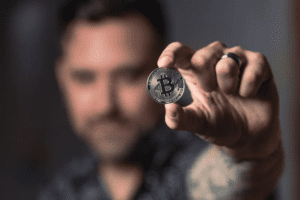The rise of online casinos has sparked a growing debate within political circles as governments grapple with the economic, social, and ethical implications of digital gambling. One game, in particular, is emblematic of this online casino boom: Plinko. Originating from game shows, Plinko has evolved into a popular digital gambling option, where players drop a ball through a pegged board, aiming for prize slots at the bottom. But beneath the seemingly harmless veneer of fun and chance, Plinko and other online gambling activities are drawing increased scrutiny for their broader societal impacts.
As governments worldwide try to navigate the burgeoning online gambling industry, the role of Plinko, line plinkorealmoney.eu and similar games in the digital economy reveals key tensions between regulation, individual freedom, and public health.
The Growth of Online Casinos: A Booming Industry
The global online casino market has seen tremendous growth over the past decade, driven by technological advancements, wider internet access, and a desire for new forms of entertainment. As of 2024, the online gambling market is valued at over $70 billion, with predictions that this number will continue to rise. For governments, this offers an attractive source of tax revenue, job creation, and potential economic growth.
However, it also raises serious questions about regulation and protecting vulnerable populations. Online gambling platforms, including Plinko gambling sites, are often seen as more accessible, and thus potentially more harmful, than traditional brick-and-mortar casinos. The political conversation surrounding online gambling often touches on key points like consumer protection, addiction prevention, and the societal costs associated with gambling.
Plinko: A Simple Game with Complex Implications
On the surface, Plinko seems like an innocent game. Players drop a ball down a pegged board, watching it bounce unpredictably before it lands in a prize slot, with each slot offering varying payouts. The simplicity and fast-paced nature of Plinko make it particularly attractive to casual gamblers, especially those new to online casinos.
But despite its lighthearted appearance, Plinko gambling carries many of the same risks as other casino games. Like slot machines or roulette, Plinko offers instant gratification, reinforcing potentially addictive behaviors. This is why political leaders and regulators are taking a closer look at how games like Plinko are integrated into the broader gambling ecosystem, and how they may contribute to gambling addiction, especially among younger audiences.
The Regulatory Debate: Protecting Consumers vs. Economic Benefits
The political landscape surrounding online gambling is fraught with tension. On one side, proponents of digital casinos, including Plinko games, argue that they contribute to economic development, offering jobs, increasing tax revenue, and fueling innovation in the gaming and tech sectors. Countries like the UK and Malta have embraced online gambling as a regulated industry, setting up frameworks to oversee operators, protect consumers, and ensure fairness.
On the other hand, critics of online gambling are concerned about its social costs. Gambling addiction rates are rising, particularly in regions where access to online casinos is unchecked. Opponents argue that the accessibility of online games like Plinko makes it easier for people to fall into harmful gambling patterns, often without the immediate oversight or support systems that exist in physical casinos.
Moreover, governments face pressure to strike a balance between allowing economic growth through gambling while also ensuring public health. Politicians must decide how much regulation is necessary to protect consumers, particularly those who are vulnerable, while still allowing the industry to thrive. This leads to contentious debates around:
- Age Restrictions: How do you ensure that minors don’t gain access to online gambling sites? With games like Plinko becoming popular with younger audiences due to their game show origins, stricter age verification methods are a frequent topic in political discussions.
- Gambling Addiction Prevention: Should governments mandate that online casinos provide tools for players to set betting limits, track their gaming habits, or self-exclude? Some countries have adopted such measures, but there is no global standard for these protections.
- Taxation and Regulation: How should online casinos be taxed, and how can governments ensure that revenues from gambling are reinvested in public welfare initiatives, particularly in addiction treatment and mental health services?
Plinko, Politics, and Social Responsibility
One of the central concerns in the political discussion around Plinko and online gambling is social responsibility. While the game may seem benign, the addictive nature of gambling is a serious issue that affects individuals, families, and communities. As more people turn to digital platforms for their gambling entertainment, the potential for harm increases.
In many cases, it’s the government’s role to safeguard public well-being, which is why political leaders are increasingly calling for stricter regulations on online gambling platforms. Some countries are even exploring bans on certain types of gambling, particularly games that appeal to vulnerable groups.
The social costs of gambling are difficult to ignore. Plinko gambling and other casino games contribute to financial instability, mental health issues, and family breakdowns for a significant segment of the population. As a result, policymakers must balance the entertainment value and economic benefits of online casinos with the very real societal consequences.
The International Picture: How Different Governments Handle Online Gambling
Globally, there is no unified approach to regulating online gambling, including games like Plinko. Countries take vastly different stances based on their cultural values, economic interests, and political systems. For example:
- The United Kingdom: The UK has one of the most well-regulated online gambling markets in the world, with the UK Gambling Commission ensuring that operators adhere to strict rules designed to protect consumers. Plinko and similar games are allowed but must comply with responsible gambling policies.
- The United States: Online gambling in the U.S. is heavily restricted, with only a few states like New Jersey and Pennsylvania allowing it. Politicians are still grappling with whether to expand legal online gambling or continue to limit it to certain jurisdictions.
- Australia: Australia has seen rising concerns over problem gambling, leading to tighter restrictions on online gambling advertisements and access. The Interactive Gambling Act places limitations on what types of gambling services can be offered, including games like Plinko.
- China: Gambling is largely illegal in mainland China, with the government taking a strict stance on both physical and online casinos. However, special administrative regions like Macau have become hubs for legalized gambling, though Plinko gambling is not as widely embraced.
Navigating the Future of Plinko and Online Gambling
As online casinos continue to grow in popularity, political leaders must consider the broader implications of games like Plinko on society. While these games can offer entertainment and economic benefits, they also present serious risks, particularly around addiction and financial instability. Governments worldwide must navigate the fine line between promoting innovation and protecting public welfare.
The future of Plinko gambling sites will depend largely on how these political debates unfold. Stricter regulations, consumer protections, and responsible gambling initiatives may become the norm, as governments seek to mitigate the risks while allowing individuals the freedom to enjoy online gambling responsibly. In any case, Plinko is likely to remain a symbol of the evolving digital casino landscape and a central point of discussion in the ongoing political discourse on gambling.




